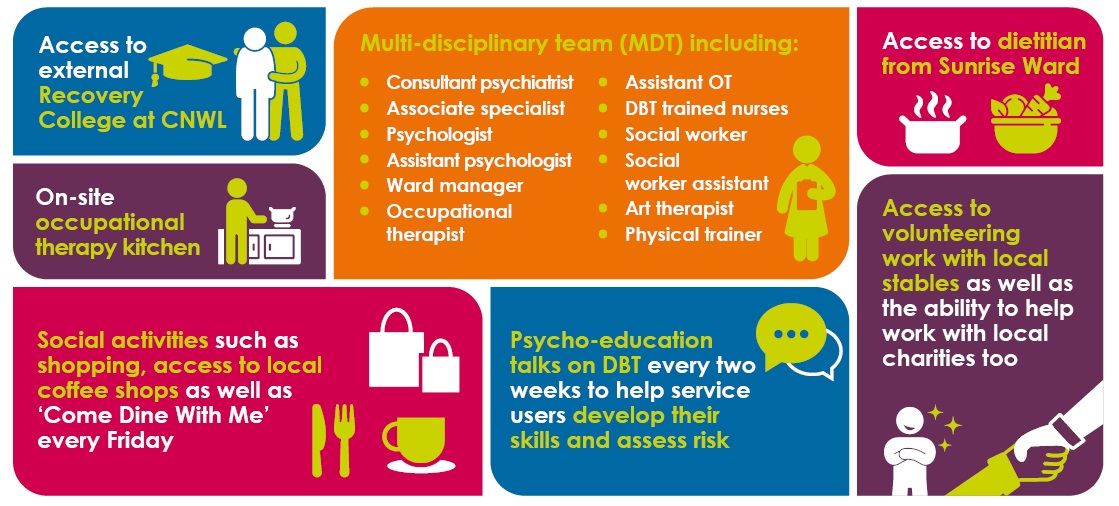Gender: Female
Age: 18+
Beds: 9
Our service can support women who have a diagnosis of personality disorder and who need either:
- A short-term crisis intervention utilising a Dialectical Behavioural Therapy (DBT) model (i.e. emergency referrals)
- A longer-term therapeutic treatment programme utilising the principles of DBT with skills coaching and individual therapy

Support
New Dawn Ward offers a programme that is well-structured to give service users the opportunity to address and deal with their problems in a safe environment. Cygnet Hospital Ealing also provides a specialist Eating Disorder service on Sunrise Ward, so service users have access to a dietician if required.
“When I had extremely difficult times, the team didn’t give up on me and move me on. The DBT the ward taught really helped me.”Service user, New Dawn Ward
Service users can also receive support from a clinical psychologist, dietician and social worker if they should be required.

Planning for discharge starts at admission and all treatment and interventions are geared towards preparing a person for successfully and positively leaving the service. After discharge, contact will be maintained with the service user’s own Community Mental Health Team to offer ongoing support and advice.

Therapies and activities
- Dialectical Behaviour Therapy (DBT), including daily Skills Training and Skills Homework Group
- Daily activities offered by the occupational therapy team, including self-nurturing, cooking, creative and walking groups
- Specialist groups including body image and healthy relationships (run for a set number of weeks)
- Music and creative therapies
- Service users suggest ward activities through a fortnightly community meeting
- Carers group once a month
- Family Therapy
- Psycho-education talks on DBT every two weeks to help service users develop their skills and assess risk
Our service user profile:
-
- Women, aged 18+
- Detained under the Mental Health Act, or may be informal
- Primary diagnoses of personality disorder, schizophrenia, schizoaffective disorder, bipolar affective disorder and depression
- May present with co-morbid presentations including:
- Self-harm
- Self-neglect
- History of substance abuse
- Complex needs
- Treatment resistance
- May have a history of trauma and/or abuse




